Ideas
Ground Report: Why Shamli Resident Saleem Wants To Become Susheel
Swati Goel Sharma
Nov 30, 2019, 08:10 PM | Updated Apr 11, 2023, 03:17 PM IST
Save & read from anywhere!
Bookmark stories for easy access on any device or the Swarajya app.
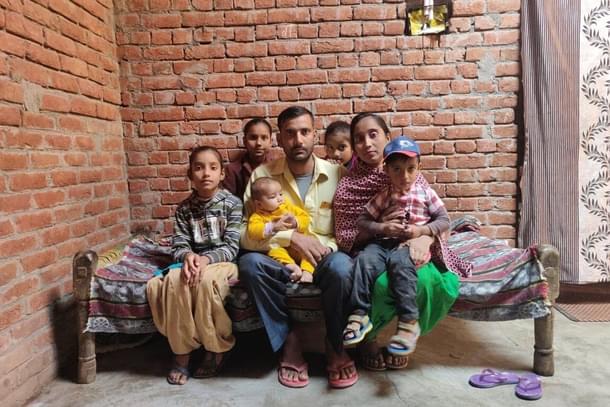
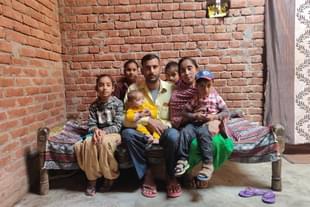
On the morning of 25 November, Saleem had just reached the local district court when he received a panic call from his wife, Wajida. The neighbouring family had barged into the house along with a group of six-seven men and attacked her and the children, she told him.
Wajida said she had managed to drive the men out and latched the doors. Saleem decided to finish his work at the court and then go straight to the police station before returning home, now that the attackers had left.
Saleem, 31, was at the court to give an application that he was changing his religion and name, and was doing so out of his free will.
After the court, he submitted a complaint at the police station. It reads (as translated),
“Saleem, a resident of Nai Basti in Shamli, was converted in 2003 by Sabdar when he was a minor. Saleem now wants to return to his religion now that he is a major. No Hindu family is pressuring him to do so. Saleem wants to become a Hindu out of respect for his ancestors. Some people in the colony have abused him for his decision and are threatening to kill him.”
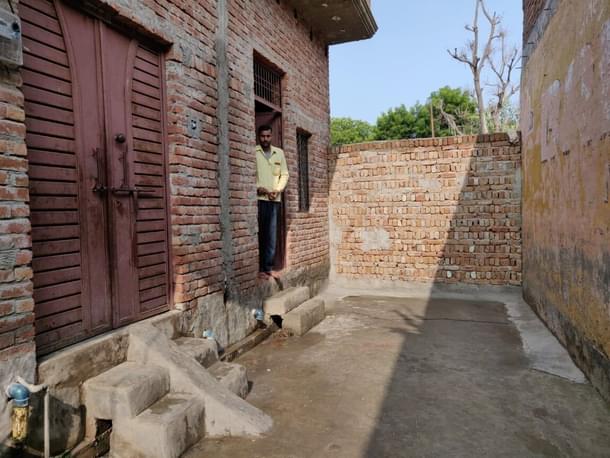
The police did not file a first information report (FIR). A cop visited his colony the same afternoon. He told both sides to stop creating a ruckus and left, says Saleem.
When this correspondent visited Saleem’s house on 29 November, he was worried for his safety. He said he had stopped sending his children to school fearing his neighbours would harm them. Saleem has three daughters and two sons; the eldest child is nine years old.
Wajida says the attackers hurled choicest abuses at them, threatening to kick them out of the colony if they went ahead with their plan. “You sister-f*****s, we won’t let you live in this colony. This Hindu Muslim thing will not be allowed here,” the men said, as per Wajida, who is 28.
The men, she said, were instigated by their neighbour Asma. “She even made two men urinate near our bed. At one point, she told the men to take her children to a madrassa so she can kill us,” says Wajida.
As commotion spread and other neighbours began to crowd outside the house, Asma and the group left and Wajida locked the door from inside.
“I don’t know how they even got to know about my decision to convert. Maybe they heard in the market,” says Saleem.
When asked, Asma denied the attack. She told this correspondent, “They want to become Hindus? Please tell them to do so today. I will personally reward them.”
Shamli district in west Uttar Pradesh, which was part of Muzaffarnagar till a few years ago, was hit by large-scale communal violence in 2013 and is considered a communally sensitive area.
Kairana town, where the human rights commission had found proof of a Hindu exodus, is part of Shamli.
Saleem was born in Kairana, in a Hindu family of Jat caste. His parents named him Susheel; that’s the name he wants for himself now.
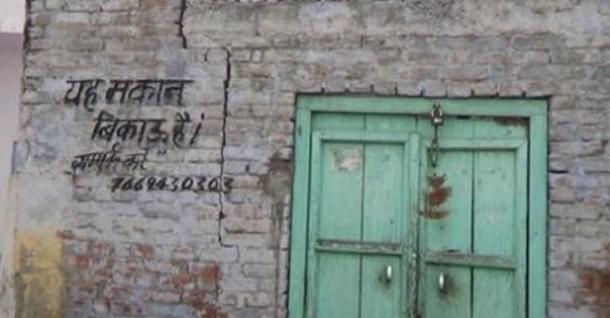
When he was seven or eight years old, his parents died. Saleem doesn’t remember how. All that his faint recollection allows him is that they were well-off; his father worked in a bank, and owned a house and some land. He was enrolled in a government school. Saleem had a sister, “four or five years” elder to him.
“Soon after their death, one of my buas took me to her home. But within a few months, I was sent off to one of my mamajis in Shamli. My sister was also passed around like this, but we never stayed together,” recalls Saleem.
Saleem says his father was the only son of his parents and had two sisters.
His schooling had come to an abrupt halt but no relative bothered to resume it, he says.
One day, he ran away.
Within months of being rendered an orphan, Susheel was out in the streets, left to fend for himself.
“I could not take the constant taunts and humiliations anymore. I just left his [maternal uncle’s] house,” he says. “Nobody came after me. They were perhaps happy to get rid of me. I wasn’t even far. I was right here in Shamli, loitering in the streets.”
“They probably sold off our house and property as well,” he says. “They are not poor folks. They are lawyers and police officers.”
A truck owner, Mohammad Sabdar, took him in as a conductor. Sadbar did not pay him but provided him food and clothes. “The truck was my workplace and my bedroom. I spend every single day and night inside it,” he recalls.
Sabdar called him Saleem. He taught Saleem how to drive.
Saleem came to know his sister was being married off, but no relative invited him. His sister died within a few years of her marriage, says Saleem. “I don’t know how. I came to know about her death much later.”
When Saleem turned 15, Sabdar arranged his marriage with Wajida who hails from Jharkhand. “My nikahnama was the first piece of document in many years. It bore my name as Saleem and it became my official identity,” he says.
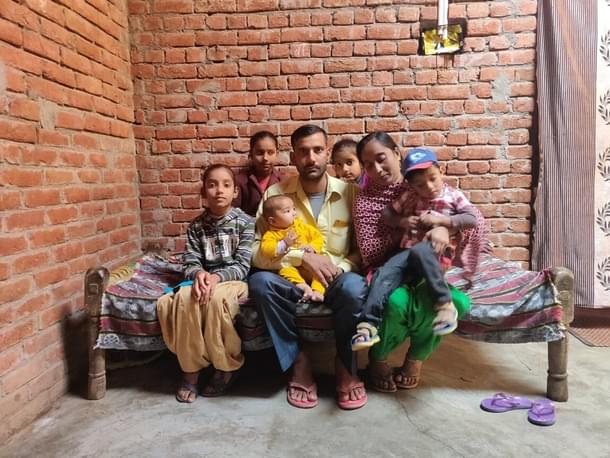
Saleem could not live in the truck anymore. The newly married couple shifted in Sabdar’s house. After about three months, Sabdar asked him to arrange for an accommodation for himself.
“I was an orphan all over again. I was penniless. In all these years, I had not earned or saved a penny,” he says.
He found work as a truck driver from one Rajesh Chadha. Salary of Rs 10,000 was fixed. Saleem left Sabdar’s house and rented a room a few metres away.
Chadha, he says, has been the kindest and most supportive of all people he met in his tumultuous journey. “Chadha ji is a very good man. When we shifted, all we had were clothes. Chadha ji helped me set up the house,” he says.
Saleem now owns a small house. He continues to work with Chadha. He feels he has settled. Hence the desire to return to his roots.
Saleem says he has been conflicted all his life, with little sense of belonging.
His relatives disowned him. His first employer exploited him. His adopted community treated him as an outsider.
“I have lived among Muslims for almost two decades now. However, I never felt I am one of them. Every Diwali, they call me to ask if I have celebrated the festival. They do it only to tease me. At times they mock me, asking if I would be buried or burnt. They bully me with similar jokes if I visit a mosque,” says Saleem.
“To be honest, I only see Ram in the mosques.”
The idea of changing his religion and name, he says, occurred to him many times, but with Sabdar, it wasn’t an option.
As he separated from him, he realised he did not know the process.
It was a chance meeting with a social worker that Saleem came to know that he must give an application in the local court.
The alleged attack and the threats have left him unnerved. Saleem however says he is glad that the attack was widely reported in the local media; he hopes that will deter the attackers.
Wajida is cheerful as she speaks in support of Saleem. “I am with him. That’s all I know,” she says.
Wajida was born a Muslim. Is she ready to adopt a new identity?
“In my heart, I will worship only Allah. But I will follow him. I will be happy if I retain my name but a change in name won’t be a problem either,” she says.
What about her family?
“They will not like it. But I know they will eventually accept it,” she says.
Swati Goel Sharma is a senior editor at Swarajya. She tweets at @swati_gs.





